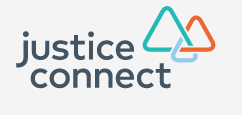Coming out will be a different experience for different people. Some young people will have struggled with their sexuality or gender identity, and may find it difficult to tell friends and family. Others may find it liberating to be able to express themselves freely. But whatever the situation, coming out to a parent, sibling or other family member can be extremely stressful.
Parent Support Options – Working It Out
Need someone to talk to in relation to a family member’s diverse gender, sex or sexuality (see below for people 18 or under)? Trying to work out what it all means? Wanting to learn more about how you can support a loved one?
Free, confidential support sessions are available to learn more and to talk through concerns and issues.
Sessions available in Burnie, Hobart and Launceston or by phone, online video or other methods by negotiation.
Webchat: Online peer support
QLife provides anonymous and free LGBTI peer support and referral for people in Australia wanting to talk about sexuality, identity, gender, bodies, feelings or relationships.
Pronouns: Resource: Language for identity
The language used to affirm the identities of trans and gender diverse people is constantly evolving, but it is a vital part of how we show our respect and support.
The Parents of Gender Diverse Children (PGDC) have created a selection of terms that might be helpful. Teens and young people in particular are always coming up with new terms and ways to refer to themselves, so this list is ever changing and not exhaustive.
Pronouns: 9 books to introduce gender and pronouns to kids
This website provides recommendations of 9 great books for kids to learn about gender and pronouns.
Resource: For trans and gender diverse children and adolescents
The Australian Standards of Care and Treatment Guidelines (ASOCTG) aim to maximise quality care provision to trans and gender diverse children and adolescents across Australia, whilst recognising the unique circumstances of providing such care to this population.
Resource: Support sessions for families
Need someone to talk to in relation to a family member’s diverse gender, sex or sexuality (see below for people 18 or under)? Trying to work out what it all means? Wanting to learn more about how you can support a loved one?
Free, confidential support sessions are available to learn more and to talk through concerns and issues.
Sessions available in Burnie, Hobart and Launceston or by phone, online video or other methods by negotiation.
Resource: Families Like Mine
Families like mine is a guide for parents and families of young people who are lesbian, gay, bisexual, gender diverse or who are questioning their sexuality or gender identity.
Resource: Tasmanian Gender Service
The Tasmanian Gender Service (TGS) is for children and young people (Up to 18 years), and their families, who are experiencing gender related issues. It is a specialised service which offers help for families living in Tasmania. They also work closely with the Gender Service at the Royal Children’s Hospital in Melbourne and link in with other specialist gender services across Australia.
Resource: How to update your gender status on formal documents in Tasmania

Justice Connect has provided a resource for trans and gender diverse young people and their families to understand how to update their gender status on formal documents in Tasmania.
This fact sheet answers some common questions trans and gender diverse young people, and their families, have about self-identification on formal documents.
Choices around self-identification should be respected. By reading this resource you will get a better understanding of the options in Tasmania.